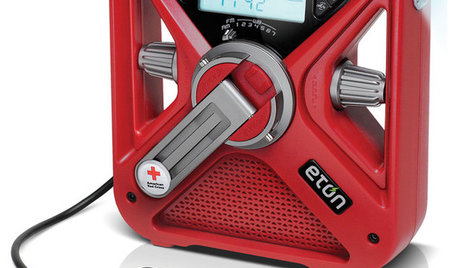Head Gasket - Oil Burning Question
optsyeagle
10 years ago
Related Stories

KITCHEN DESIGN10 Big Space-Saving Ideas for Small Kitchens
Feeling burned over a small cooking space? These features and strategies can help prevent kitchen meltdowns
Full Story
KITCHEN DESIGNA Cook’s 6 Tips for Buying Kitchen Appliances
An avid home chef answers tricky questions about choosing the right oven, stovetop, vent hood and more
Full Story
FURNITURESmart Shopper: How to Judge Antique Furniture Quality
Pick the treasures from the trash without expert experience by learning how to evaluate antiques and what questions to ask
Full Story
MOST POPULARThe Most Incredible Kids' Tree House You'll Ever See?
Duck your head to enter this unforgettable Dallas wonderwork, lovingly crafted with imaginative delights
Full Story
HOME OFFICESDream Spaces: Home Offices You’d Be Delighted to Work In
Warm lighting, comfortable furnishings and pleasing views can make you want to head into your home office each day
Full Story
TRADITIONAL HOMESHouzz Tour: Tudor-Inspired Outside, Open and Contemporary Inside
A designer shows respect for a home’s historic St. Paul neighborhood with a fresh take on Tudor style
Full Story
MODERN HOMESHouzz Tour: A Modern Take on a Montana Log House
Multiple buildings form a vacation compound that's more like environmental art than architecture
Full Story
LIGHTINGSo You Bought a Cave: 7 Ways to Open Your Home to Light
Make the most of the natural light your house does have — and learn to appreciate some shadows, too
Full Story
HOME TECH7 Ways to Charge Up and Connect After Disaster
Products and tips for communicating and keeping essential items running till the power's back on
Full Story
HOUZZ TOURSMy Houzz: Brightness and Creativity in a Live-Work Townhouse
Quirky finds, vintage and modern furniture, and warm and cool materials pair beautifully in this remodeled Toronto home
Full Story





bill_kapaun
mownie
Related Professionals
Glassmanor Landscape Architects & Landscape Designers · Waterbury Landscape Contractors · Chelmsford Landscape Contractors · Fridley Landscape Contractors · Lexington Landscape Contractors · Methuen Landscape Contractors · Salmon Creek Landscape Contractors · Santa Maria Landscape Contractors · Smyrna Landscape Contractors · South Farmingdale Landscape Contractors · Littleton Window Contractors · 45056 Window Contractors · Cypress Window Contractors · Decatur Window Contractors · Tamalpais-Homestead Valley Window ContractorsoptsyeagleOriginal Author
optsyeagleOriginal Author
mownie
mla2ofus
mownie
optsyeagleOriginal Author
rcbe
optsyeagleOriginal Author
tomplum